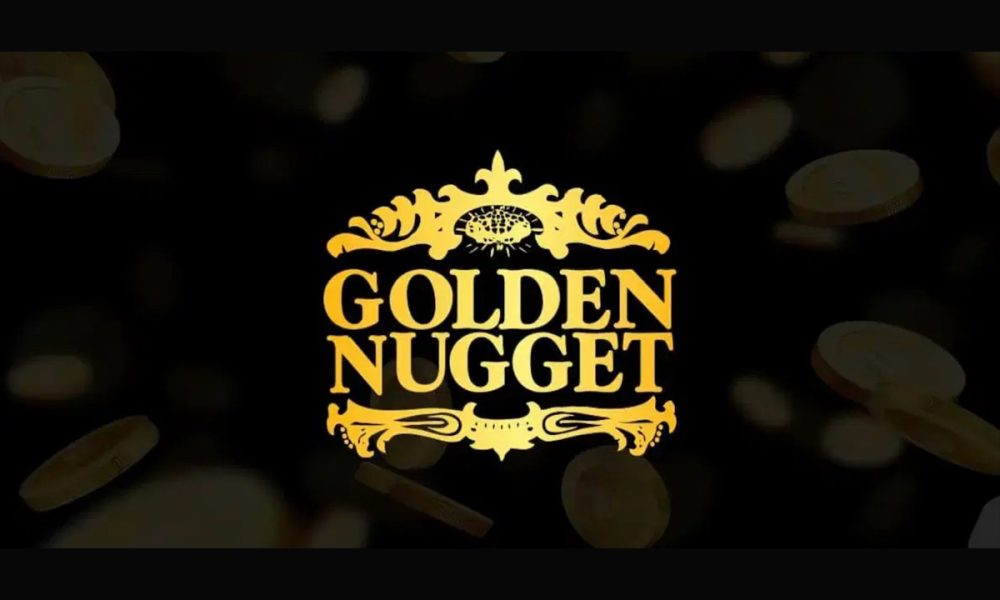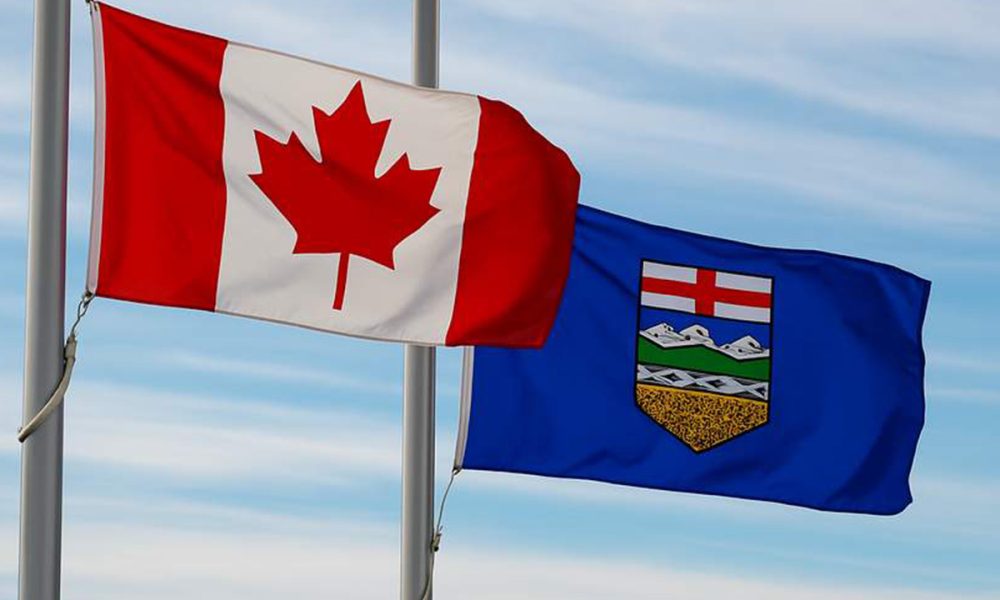

Canada
INDIANA’S SPORTS BETTING VOLUME DROPS TO LOWEST LEVEL IN NEARLY A YEAR Sportsbooks take in $194.5 million in bets in what is historically the slowest month of the year, but still tops $4 billion milestone for lifetime wagering, according to PlayIndiana
Indiana’s sportsbooks slowed to less than $200 million for the first time in nearly a year, but volume was still enough to push the state’s lifetime handle past $4 billion — $3 billion of which has come over the last 12 months. July’s slowdown came during what is historically the month with the lowest sports betting volume in the U.S., a pattern that continued even as the NBA Finals and the first week of the Olympics gave this July an unusually busy sports calendar, according to PlayIndiana, which tracks the state’s gaming industry.
“Sports betting is ultimately for entertainment, and this time of year it can take a backseat to long weekends at the lake or summer barbecues,” said Jessica Welman, analyst for the PlayUSA.com Network, which includes PlayIndiana.com. “With people traveling at an accelerated rate this summer, it appears that the trough is even more pronounced than usual. But July should be the low point, as bettors begin to return from their summer vacations in August and excitement builds for the upcoming football season.”
Online and retail sportsbooks took in $194.5 million in bets in July, which is down 21% from $246.3 million in June, according to official reporting released Thursday. Averaged out over the 31 days of July, sportsbooks accepted $6.3 million in wagers per day, down from $8.2 million per day in June.
Gross gaming revenue remained relatively strong in July with $17.2 million, down 35.6% from $26.7 million, which equals an 8.9% hold. Adjusted gross revenue came in at $17.5 million, yielding $1.7 million in state taxes.
Indiana’s results are in line with historical trends. Removing the pandemic-altered numbers produced in 2020, the lowest-volume month across the U.S. in both 2018 and 2019 was July.
Baseball topped all sports with $63.5 million in wagering, up from $60.5 million in June. The NBA Finals fueled $26.8 million in basketball betting in July, which was down from $77.1 million in June. Basketball has generated $896.9 million in bets so far this year, more than any sport by far, and has been the most bet-on sport in every month since December 2020.
“Indiana’s love of basketball has helped shield the state’s sportsbooks from some of the more pronounced seasonal dips experienced in other states, so a smaller volume of games in July was felt,” said Nicole Russo, analyst for PlayIndiana.com. “Betting interest on the Olympics appears to have been modest at best, and even with the NBA Finals being later than usual, it wasn’t enough to overcome fewer games being on the board.”
July’s wagering was enough to push Indiana past another significant milestone, becoming the state with the smallest population — other than Nevada — to reach $4 billion in lifetime handle. Since sports betting launched in Indiana in September 2019, sportsbooks have generated:
- $4.1 billion in online and retail wagering, including $3.0 billion since Aug. 2020
- $334.6 million in gross gaming revenue
- $31.8 million in state taxes.
“The market has changed significantly since launch, but from the beginning Indiana has punched above its weight class among U.S. markets,” Welman said. “It remains a model market that states still considering the legalization of sports betting would be wise to emulate.”
Bettors made $174.6 million in online wagers in July, accounting for 89.8% of all bets made in the state. Retail betting accounted for the remaining $19.9 million in July, down from $27.9 million in June.
DraftKings held on to its market lead in July with $60.2 million in online wagering, down from $75.6 million in June. July’s bets generated $4.7 million in gross receipts, down from $6.2 million in June. FanDuel closely trailed with $54.3 million in July wagering, down from $64.2 million in June. Those bets produced a market-best $5.3 million in gross receipts, down from $9.1 million.
The leaders were followed by:
- BetMGM ($25.6 million handle, down from $29.2 million in June; $2.2 million win, down from $3.2 million).
- William Hill ($7.9 million handle, down from $11.1 million; $228,927win, down from $3.0 million)
- Barstool ($7.2 million handle, down from $10.4 million; $463,462 win, up from $33,167)
- PointsBet ($7.0 million handle, down from $14.6 million; $747,400 win, down from $885,812)
- BetRivers ($6.9 million handle, even with June; $659,187 win, up from $600,924)
- TheScore ($3.4 million handle, down from $3.8 million; $73,512 win, down from $41,678)
- Unibet ($852,852 handle, down from $1.0 million; $80,444win, up from $53,947)
- WynnBet ($737,797 handle, down from $794,481; $109,614 win, down from $81,738)
- TwinSpires ($536,783 handle, up from $561,116; -$5,043 win, down from $80,162)
- BetWay ($30,859 handle, down from $55,218; -$1,059 win, down from -$25)
Hollywood Lawrenceburg, nearest to Cincinnati and one of the highest-volume retail sportsbooks in the U.S., led retail books in Indiana with $5.9 million in wagers, down from $9.0 million in June. Ameristar East Chicago was second with $3.04 million, narrowly topping $2.98 million at Indiana Grand and $2.7 million at Harrah’s Hoosier Park.
“Retail betting is still trying to bounce back to pre-pandemic levels, and news of a fresh surge in the pandemic is the latest challenge for the industry,” Russo said. “Online sportsbooks will continue to flourish in the state, but it’s apparently going to continue to be a hard road for the retail side.”
Canada
Golden Nugget Online Casino Debuts in Ontario

Golden Nugget Online Gaming has officially entered the Canada online casino market with its launch in Ontario.
Backed by DraftKings technology, the brand is now offering players a feature-rich mobile and desktop gaming platform. This move also marks the first time the Golden Nugget brand has expanded outside the US.
The casino debuted with more than 2000 slot titles, alongside blackjack, roulette, and craps. The platform is available on iOS and Android, ensuring accessibility across devices.
With its debut in “The Heartland Province,” Ontario becomes the fifth region where Golden Nugget operates, joining Michigan, New Jersey, Pennsylvania, and West Virginia.
Matt Kalish, President of DraftKings North America, noted that this development is a welcome opportunity for the brand to provide top-quality online casino gaming for players in a burgeoning iGaming market.
Kalish added: “Golden Nugget is one of the most iconic brands in gaming, and we are thrilled to be live in Ontario with its robust mobile casino offering. The Golden Nugget Online Gaming casino app offers hundreds of popular casino games, exclusive content, smooth navigation, premium support, and a dynamic loyalty program – all backed by DraftKings’ cutting-edge technology.”
Ontario’s regulated iGaming market is already crowded. iGaming Ontario reports that the province hosts 50 licensed operators and 87 active gaming websites. Importantly, online casinos account for 88% of cash wagers. In June alone, the vertical produced CA$243 million in net gaming revenue from CA$7.26 billion in total wagers.
Golden Nugget aims to stand out with both classic and exclusive content. Players can access land-based favorites like Huff N’ More Puff, Cleopatra, and Hypernova Megaways. Exclusive DraftKings titles such as Rocket, Dollar Up, and Quakey Shakey also enhance the library. Many jackpot titles even exceed $1 million.
The post Golden Nugget Online Casino Debuts in Ontario appeared first on Gaming and Gambling Industry in the Americas.
AGLC
Casino ATM Scam in Edmonton Reveals Money Laundering and Drug Links

Law enforcement in Alberta continues to search for the last suspect in a sophisticated fraud operation that targeted ATMs in Edmonton-area casinos and resulted in over CAD 1 million ($720,487) in losses throughout Western Canada.
The Royal Canadian Mounted Police (RCMP) has confirmed that Hisham Ismaeel, 28, remains at large with a province-wide warrant for his arrest. He faces charges of fraud exceeding $5000 and possessing proceeds of crime. Police have already arrested four other men linked to the scheme. Investigators describe the operation as a well-planned effort to exploit financial systems and clean dirty money.
The accused, Elliot Miao, 42, Van Bau Ta, 39, Hassan Jaafar Haydar Ahmad, 37, and Dennis Jones, 42, showed up in the Alberta Court of Justice last week. They face charges from fraud and money laundering to owning criminal property. Miao also has a narcotics trafficking charge after police found cocaine when they searched with warrants.
Investigators claim the group made coordinated withdrawals at several casino ATMs, timing their transactions to avoid getting caught. This action messed up ATM networks in the area and showed flaws in the systems that banks and casinos use to stop misuse.
The RCMP Federal Policing Northwest Region led an investigation that involved six search warrants in Edmonton. The Edmonton Police Service, the Financial Transactions and Reports Analysis Centre of Canada (FINTRAC), Alberta Gaming, Liquor and Cannabis (AGLC), and several banks supported this effort. Officials said the case shows how teamwork between public agencies and the private sector plays a key role in combating modern financial crime.
AGLC representatives pointed out that casino operators in the province must follow strict reporting and surveillance rules under Canada’s anti-money laundering laws. The specific casinos affected remain unnamed, but the Edmonton region has seven licensed facilities. AGLC said its policies helped spot problems and backed the RCMP’s investigation.
Compliance experts say this fraud shows how criminals change their methods to take advantage of weak spots in reporting limits and transaction checks. They claim that casinos, which deal with lots of cash, are still easy targets unless they keep improving their detection systems and teach their front-line workers to notice coordinated actions like several big withdrawals happening one after another.
For now, the case highlights both the money and crime aspects of casino-related fraud. Besides the million-dollar losses, finding drugs during the raids points to a bigger criminal operation where financial crimes and drug dealing overlap.
The post Casino ATM Scam in Edmonton Reveals Money Laundering and Drug Links appeared first on Gaming and Gambling Industry in the Americas.
Bragg Gaming
Bragg Confirms Cyber Attack – Hackers Access Internal IT Systems

Bragg Gaming Group, a leading online gaming technology provider, has confirmed a major cybersecurity incident that compromised its internal IT infrastructure in the early hours of Saturday, August 16, 2025.
The company detected unauthorized intrusion attempts that successfully breached its internal network, triggering an immediate and comprehensive incident response.
Key Takeaways
-
Bragg Gaming Group experienced a cybersecurity breach involving access to internal IT systems.
-
No customer personal data or payment information appears to have been compromised.
-
The company has enacted full containment and investigation protocols.
Details of the Breach
According to a preliminary forensic analysis by Bragg’s internal security team, the attack was a targeted breach aimed at the company’s internal computer environment. While the exact method of intrusion is still under investigation, early indicators suggest a sophisticated exploit of internal network vulnerabilities.
Fortunately, the company’s customer-facing systems, including sensitive user data and financial information, appear to have been unaffected. Bragg’s existing encryption protocols and access control systems successfully prevented the attackers from accessing customer information.
Immediate Response Measures
In response to the breach, Bragg launched a multi-tiered containment strategy, including:
-
Network Segmentation to isolate affected systems
-
Enhanced Monitoring of data flows across its Remote Games Server (RGS) platform
-
Security Audits of critical infrastructure, including the Bragg Hub and PAM systems
-
Engagement of Independent Cybersecurity Experts to assist in incident analysis and system hardening
Bragg’s Security Operations Center has also elevated its alert level, initiating 24/7 monitoring across all server clusters and network endpoints. In addition, company-wide penetration testing is now underway to proactively identify any residual vulnerabilities.
Business Continuity Maintained
Despite the severity of the breach, Bragg reports that its operations remain unaffected. All gaming services, including iCasino and sportsbook offerings across regulated markets, continue to function without disruption.
“While this incident is deeply concerning, we are confident in the rapid and thorough response initiated by our team,” a company spokesperson stated. “We remain committed to protecting our infrastructure, our partners, and most importantly, our players.”
Looking Ahead
As part of its response, Bragg has also launched mandatory security awareness training for all employees to reinforce best practices and prevent future incidents.
Cybersecurity analysts will continue working with Bragg to determine the full scope of the attack, improve system resilience, and maintain the trust of its users and stakeholders.
Bragg’s handling of the incident highlights both the evolving nature of cybersecurity threats and the importance of robust, responsive defense systems in the digital gaming sector.
Source: cybersecuritynews.com
The post Bragg Confirms Cyber Attack – Hackers Access Internal IT Systems appeared first on Gaming and Gambling Industry in the Americas.
-

 gaming3 years ago
gaming3 years agoODIN by 4Players: Immersive, state-of-the-art in-game audio launches into the next generation of gaming
-
EEG iGaming Directory8 years ago
iSoftBet continues to grow with new release Forest Mania
-
News7 years ago
Softbroke collaborates with Asia Live Tech for the expansion of the service line in the igaming market
-
News7 years ago
Super Bowl LIII: NFL Fans Can Bet on the #1 Sportsbook Review Site Betting-Super-Bowl.com, Providing Free Unbiased and Trusted News, Picks and Predictions
-
iGaming Industry8 years ago
Rick Meitzler appointed to the Indian Gaming Magazine Advisory Board for 2018
-
News7 years ago
REVEALED: Top eSports players set to earn $3.2 million in 2019
-
iGaming Industry8 years ago
French Senator raises Loot Boxes to France’s Gambling Regulator
-
News7 years ago
Exclusive Interview with Miklos Handa (Founder of the email marketing solutions, “MailMike.net”), speaker at Vienna International Gaming Expo 2018







